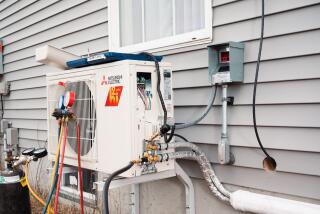The green VW
- Share via
America needs an Axel Friedrich.
Friedrich, a top German environmental regulator, got tired of hearing automakers promise to cut vehicle emissions as soon as the technology to build hydrogen-powered cars comes along in, oh, 20 or 30 years. So, as recounted recently in the Wall Street Journal, he hired a bunch of engineers to take a Volkswagen Golf and make it more environmentally friendly using existing technology, without compromising safety or horsepower. They managed to cut emissions by 25% -- much to the chagrin of Volkswagen, which now faces uncomfortable questions about why it hasn’t bothered to make the same simple fixes.
If Friedrich’s engineers could do that with a Golf, which is already much greener and more fuel-efficient than most American cars, think what they could do with our domestic behemoths.
Germany, like the United States, is deeply conflicted about how hard to crack down on its auto industry in the face of such rising threats as global warming and over-reliance on imported oil. In this country, which has among the worst fuel-economy standards in the developed world and hasn’t improved them in more than two decades thanks to the outsize power of Detroit lobbyists, the Senate has finally passed an energy bill that mandates modest gains (going from a fleet average of 25 mpg to 35 mpg by 2020). But the measure is in trouble because the House didn’t include fuel standards in its version of the bill.
Detroit likes to claim that making cars more efficient is too costly, requires changes that consumers won’t accept or would compromise safety, or that the technology isn’t here yet. Bulle düngen, as Friedrich might say. His re-engineered Golf got dramatically better mileage with simple changes in parts -- tires with low roll-resistance, gear-shift indicators that signal the most efficient times to shift, tiny cameras to replace rear-view mirrors. Some of the fixes were more expensive or intrusive, such as lightweight front seats, a carbon hood cover and an engine that shuts off automatically when the car is idling. These could well increase a car’s price, but drivers could make up for the increase by paying less at the pump.
In Germany, automotive fleets are required to achieve an emissions level that’s the U.S. equivalent of a 40-mpg fuel economy standard. Now that’s Fahrvergnügen.
More to Read
A cure for the common opinion
Get thought-provoking perspectives with our weekly newsletter.
You may occasionally receive promotional content from the Los Angeles Times.










